6th Annual CCHART Summer Symposium
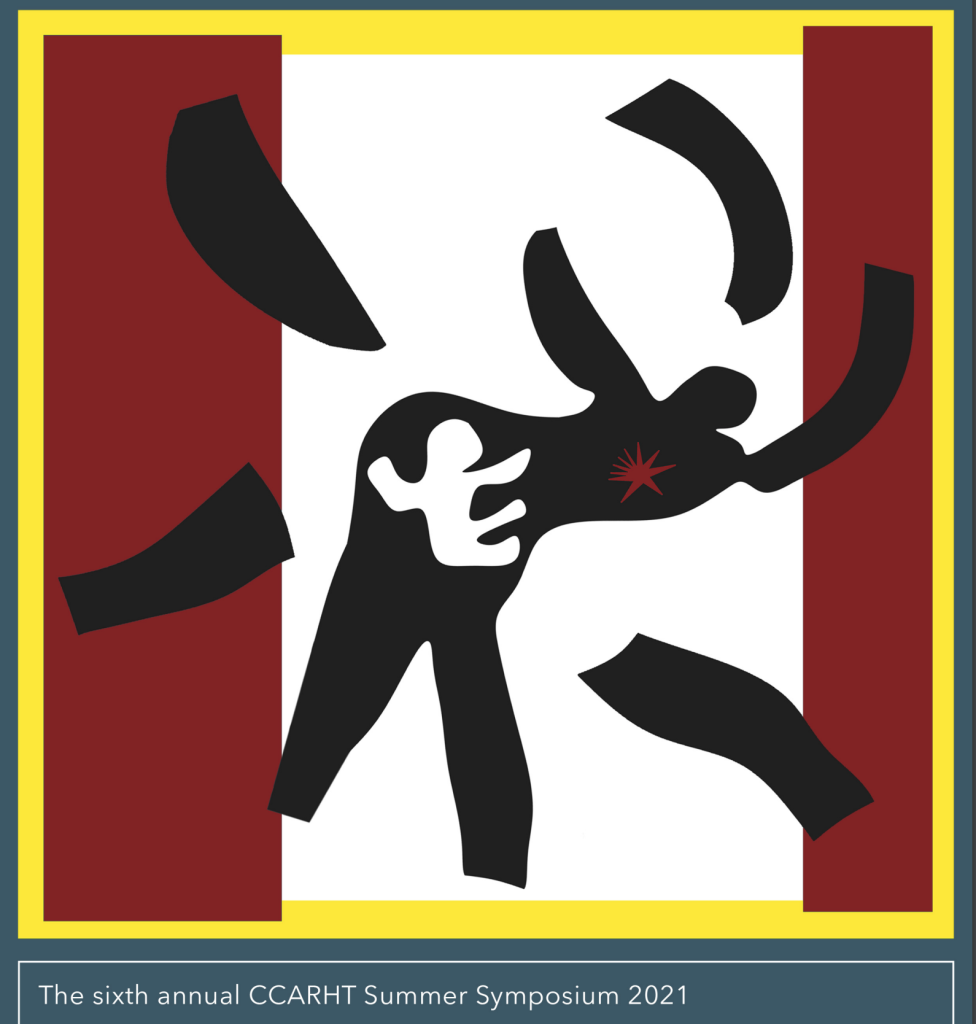
Timetable
Day one will unravel the elements of trafficking which are woven across the trajectories of international adoption, as well as in country adoption, particularly where adoption has been routinised through children’s institutions where babies have been surrendered to the care of the state, due to cultural stigmatisation, and the constraints of poverty. Countries currently in the frame include New Zealand, Canada, the USA, Ireland, Greece, the Philippines, China.
Day two will address the unpalatable and heinous crimes which surround the harvesting of organs, body parts and body products through deception, constraint, force, abuse of power, or the giving or receiving of payments of persons to achieve the consent of a person who has control over another person – for the exploitation of their body. Countries currently in the frame include Mozambique, RSA, DR Congo, Benin, Nigeria, Libya, Italy, India, Bangladesh, East Asia, Norway, the Gambia, Romania and Moldova, Ukraine.
Day three will bring our attention back, principally but not exclusively, to female bodies, and the way in which bodies have their ‘value’ extracted through various forms of penetration, sexualised violence, and traumatic violation. We shall be considering the various degrees of violation in relation to the extraction and proliferation of sexualised images, alongside the voyeuristic exploitation of bodies through the deployment of web-based technologies which have been literally on steroids during Covid 19, and the ongoing mainstream exploitation of young women, boys, and transgendered people through recruitment into various aspects of the unregulated and regulated ‘sex industry’. We shall be exploring the utility of various forms of policy in generating safer and more respectful environments for sexual exchange in our late modern economies. Countries in the frame include Nigeria, Romania, Albania, Nepal, the Philippines, Mexico, Cyprus, Indonesia, USA, Sweden, Ireland, the UK.
Day four
Masterclass opportunity – for those preparing their theses, looking to publication or undertaking fresh lines of research to be in conversation with some of those participating in the three-day open seminars. Please fill in the contact sheet on the area you are working on, so that we can facilitate ad day which responds to your particular area of academic and project formation need. Research Methodologies to consider, enabling of senior networks, building peer support, evaluation framing, coaching for research defence, opening of networks for potential internships and first appointments.
Lecturers

Ivana Bacik
Ivana Bacik is a barrister and Reid Professor of Criminal Law, Criminology and Penology at Trinity College Dublin. She is a Senator for Dublin University (first elected in 2007; re-elected in 2011, 2016 and 2020). She leads the Labour group in Seanad Éireann. Her publications include Legal Cases that Changed Ireland (co-edited with Mary Rogan, Clarus Press, 2016). She chaired the Oireachtas ‘Vótáil100’ Committee programme in 2018 to mark the centenary of women’s suffrage in Ireland and is the Labour candidate in the July 2021 bye-election in Dublin Bay South.

Dr Erica Newman
Dr Erica Newman is a lecturer in Te Tumu School of Māori, Pacific and Indigenous Studies. Erica identifies herself as being of Māori descent but due to the closed stranger adoption of her mother she does not yet know her Māori identity. Erica’s research areas are all aspects of adoption, whāngai, and identity (internationally and nationally) with a focus on indigenous perspectives. She has published articles on the topic of New Zealand transracial adoption and her MA topic was on the identity formation of Māori adoptees. Erica was recently awarded a Marsden Fast Start research grant and is conducting research on descendants of Māori adoptees searching for their tūrangawaewae (place to stand).

Oxana Alistratova
Oxana Alistratova is the leader of the NGO “Interaction” in Tiraspol (Transnistria, Moldova) which is active in preventing trafficking in human beings and domestic violence since 2003. More than 19 years ago, Alistratova established the first NGO to raise awareness of human trafficking in Transnistria in a territory where women have limited rights and are extremely vulnerable to human trafficking. Alistratova later adapted Interaction to serve not only victims of trafficking but also victims of domestic violence. She manages both a hotline for trafficking victims and concerned family members, established in 2006, and another for victims of domestic violence since 2009, which both have fielded more than 36,500 calls since their inception. Through NGO, Interaction, Alistratova played a key role in convincing local authorities of the need to adopt laws to prevent human trafficking. Since 2016 Oxana Alistratova is working towards a Ph.D. in Political Science at Moldova State University. Her current PhD research focuses on Anti-trafficking policies on the example of the Republic of Moldova and the European Union and is going to be presented in June 2021. Having an outstanding experience in post-war conflict territory Mrs. Alistratova works as trainer-expert at local, regional and international levels.

Chloe Setter
Chloe Setter is the Head of Policy at WePROTECT Global Alliance and works with the Alliance’s 200+ members to improve the response to the growing threat of technology-facilitated sexual exploitation. She was formerly the Head of Anti-Trafficking for JK Rowling’s international NGO, Lumos, tackling so-called ‘orphanage trafficking’ and launching the global #HelpingNotHelping campaign. Prior to this, serving as the Head of Advocacy, Policy & Campaigns at ECPAT UK, she helped to draft child-focused amendments to the country’s first Modern Slavery Act. Chloe set up and chaired a dedicated child trafficking group for the UK Government and the Independent Anti-Slavery Commissioner, and is currently a member of the Advisory Boards of the Journal of Modern Slavery and the Tech Coalition’s Safe Online Research Fund. She is a fellow of the Vital Voices Global Freedom Exchange and has authored multiple publications.

Vladimir Ubeivolc
Vladimir Ubeivolc got his PhD in Contextual Missiology from Wales University. He is senior pastor of an Evangelical church in Chisinau, Moldova; co-founder and president of Beginning of Life NGO; coordinator of Peace and Reconciliation Network (within WEA) in Eastern Europe and Central Asia. He taught in various Christian universities and seminaries in such countries as Moldova, Ukraine, Russia and in a few schools in Central Asia. Married to Yulia, together they raised their daughter Anna.

Tania García Sedano
Tania García Sedano was licensed and PHD , with the mention cum laude, at the Carlos III University. Her thesis was about trafficking in human beings for the purpose of slavery, forced labor, servitude and practices similar to slavery. Since 2006 he is a judge, starting his activity in the judicial district of Soria. Subsequently, she continued as a Deputy Magistrate at the Provincial Court of Ávila and in 2018 at the Provincial Court of Madrid. In 2011, she started teaching as an associate professor at the Carlos III University and in 2015 she joined the Pontifical University of Comillas as a collaborating professor. He has taught in numerous degrees and postgraduate degrees in both the best universities and the Pompeu Fabra University, Queen Mª Cristina University, the University of Seville, among others. She has been a consultant to the International Labor Organization in Spain on forced labor and contemporary forms of slavery. She collaborates with different social movements and NGOs specialized in trafficking in human beings.

David Flores Chinchetru
David Flores Chinchetru, researcher at Empower LLC, focused on human rights and migration. Over ten years of experience as digital editor and journalist. Russian and Spanish translator for asylum seekers in Spain. I have also collaborated with grassroots migrant organizations in Baku, Moscow and Madrid.

Aman Kumar PhD
He is from Varanasi-Uttar Pradesh, India. He had completed my Ph.D on the issue of Human Trafficking and Migration in Nepal from Centre for the Study of Nepal, Faculty of Social Sciences, Banaras Hindu University, Varanasi, India in December 2019. He was started his work in field of Modern Slavery since 2012 under the banner of Free the Slaves and Freedom Fund in Northern India. He had written number of articles and research paper on the issue of Modern Slavery in different context. He has a strong field base knowledge and many years of experience. His primary passion is in the Social Sector. Currently he is working as an Assistant Director of Astha Mahila Evam Bal Vikash Sansthan- India. He is also associated as a community educator in Freedom Youth Family Justice Centre New York. He joined as a Centre Coordinator of Child Rights Centre, a the prestigious research institute of India who is dedicated to do research in context of children and women of different issues.

Massimiliano Schirinzi
Massimiliano Schirinzi is a Teacher of Italian and English as Second Languages. He’s been teaching History of Anglo-Saxon Language at the University in Palermo and works as a volunteer in Centro Astalli in Palermo (Italy). He trains foreigners and migrants for the Italian Language Certification (CELI) – University for Foreigners of Perugia. Human Rights activist, he is a cross-cultural migratory facilitator.

Seán Columb
Seán Columb is a Senior Lecturer in Law at the School of Law and Social Justice, University of Liverpool. His research interests include human trafficking, extra-legal migration and transnational crime. Seán’s current research examines how the organ trade fits into the anti-trafficking framework, its link to organised crime and the wider political economy. He has published numerous articles on this topic in peer leading journals, including the British Journal of Criminology and Law and Society Review. His book Trading Life: Organ Trafficking, Illicit Networks, and Exploitation was published with Stanford University Press in July 2020. It was awarded the SLSA book prize in 2021. Seán’s research is empirically driven and interdisciplinary, drawing on law, criminology and anthropology. His research on the organ trade has featured in the Guardian, Reuters, BBC, The Times, DW, Le Monde and De Morgen, amongst others. Seán was awarded Best Investigative News Article as part of the Anti-Slavery Media Awards in 2019 for his work with the Guardian . His book “Trading Life” formed the basis of a BBC Panorama documentary on the organ trade.

HAN Ling
Postdoc fellow in Human Rights Centre “Antonio Papisca” of the University of Padova
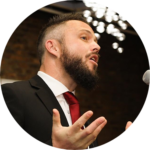
Dr Marcel Van Der Watt
Dr Marcel Van Der Watt – Marcel is a senior lecturer at the University of South Africa (UNISA); Research Director for the Global Resource Epicenter against Human Trafficking (GREAT); and Case Manager for the National Freedom Network (NFN). He is an ex-member of the South African Police Service (SAPS) where he worked as hostage negotiator and investigator attached to the Hawks (DPCI) and Sexual Offences (FCS) Unit.
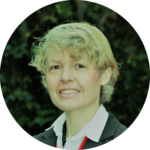
Dr Gonda Van Steen
Professor Gonda Van Steen is the Koraes Chair of Modern Greek and Byzantine History, Language and Literature and Director of the Centre for Hellenic Studies at King’s College London. Her 2019 book, Adoption, Memory, and Cold War Greece: Kid pro quo? (U Michigan Press), delivers the first critical historical study of the mass adoptions from Greece to the USA and to the Netherlands in the 1950-60s, affecting some 4,000 Greek-born children. Her book has opened up a conversation about the Cold War adoptions from Greece and about paths of recognition and redress, in which many adopted adults from Greece have joined her. Potamos Publishers will be releasing the Greek translation of her book by September 2021. Professor Van Steen is always available to answer the questions of any adopted adults from post-war Greece or of any other parties interested in this underexplored history.

Dr Ingeborg Kraus
Dr. Ingeborg Kraus is a clinical psychologist and expert in psychotraumatology. From 1995 -2002, Dr. Kraus did humanitarian work in Bosnia and Kosovo, especially working with women victims of sexual violence. She assisted in setting up one of the first shelters for women victims of domestic violence in Kosovo. Afterward, she worked 9 years as a psychologist and also as a therapeutic leader in psychosomatic and addiction clinics in Germany. Since 2012, she has directed a psychotherapeutic counseling office in Karlsruhe/Germany and has treated many victims of prostitution.
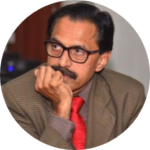
Professor P.M. Nair
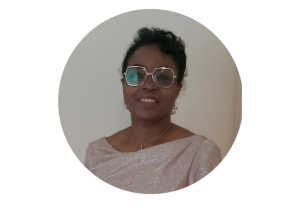
Dr Esohe Aghatise
Head of Research DFID programme Benin City 2018 -2020 Nigeria – Founder of IROKO Founder of IROKO – an NGO providing services to potential victims of trafficking, survivors of prostitution, returnees and vulnerable women, girls and families in Edo State, Nigeria.

Dr Sarah Steele
Senior Research Associate CPH University of Cambridge and Deputy Director of the Intellectual Forum at Jesus College, Cambridge.
Dr Bonny Ling – Senior Research Fellow CCARHT, Fellow of Institute for Human Rights and Business
Prof Silvia Tabusca – Romanian American University in Bucharest, Romania.
Valiant Richey – OSCE Special Representative and Co-ordinator for Combating Trafficking in Human Beings – Valiant (Val) Richey is the OSCE Special Representative and Co-ordinator for Combating Trafficking in Human Beings. He represents the OSCE at the political level on anti-trafficking issues and assists the 57 OSCE participating States in the development and implementation of anti-trafficking strategies and initiatives. His office also serves a coordinating function among OSCE structures and institutions involved in combating trafficking in human beings.
Dr Saradamoyee Chaterjee Senior Research Fellow CCARHT, Lecturer, Centre of Development Studies, University of Cambridge
Dr Halleh Seddighzedeh Director of the Arman Foundation USA. Trauma and survivor of trafficking Psychologist
Mary Honeyball MEP retd Convenor of the Honeyball Report 2013 European Parliament
Convenors for the Symposium
Dr Carrie Pemberton Ford – Executive Director of CCARHT and Senior Research Fellow MBIT University of Cambridge
Dr Esohe Aghatise – Head of Research DFID programme Benin City 2018 – 2020 Iroko
Dr Simon Stockley – Judge Business School, University of Cambridge
Dr Saradamoyee Chaterjee – Senior Research Fellow CCARHT, Lecturer, Centre of Development Studies, University of Cambridge
Arun Dohle
Mary Honeyball MEP retd – Convenor of the Honeyball Report 2013 European Parliament
Prof Soulla Louca – Director, Institute For the Future, School of Business, University of Nicosia
Prof Silvia Tabusca – Romanian American University in Bucharest, Romania.
Dr Halleh Seddighzedeh – Director of the Arman Foundation USA
Dr Bonny Ling – Senior Research Fellow CCARHT, Fellow of Institute for Human Rights and Business
Hugo Tomazeti – (CCARHT Admissions).
